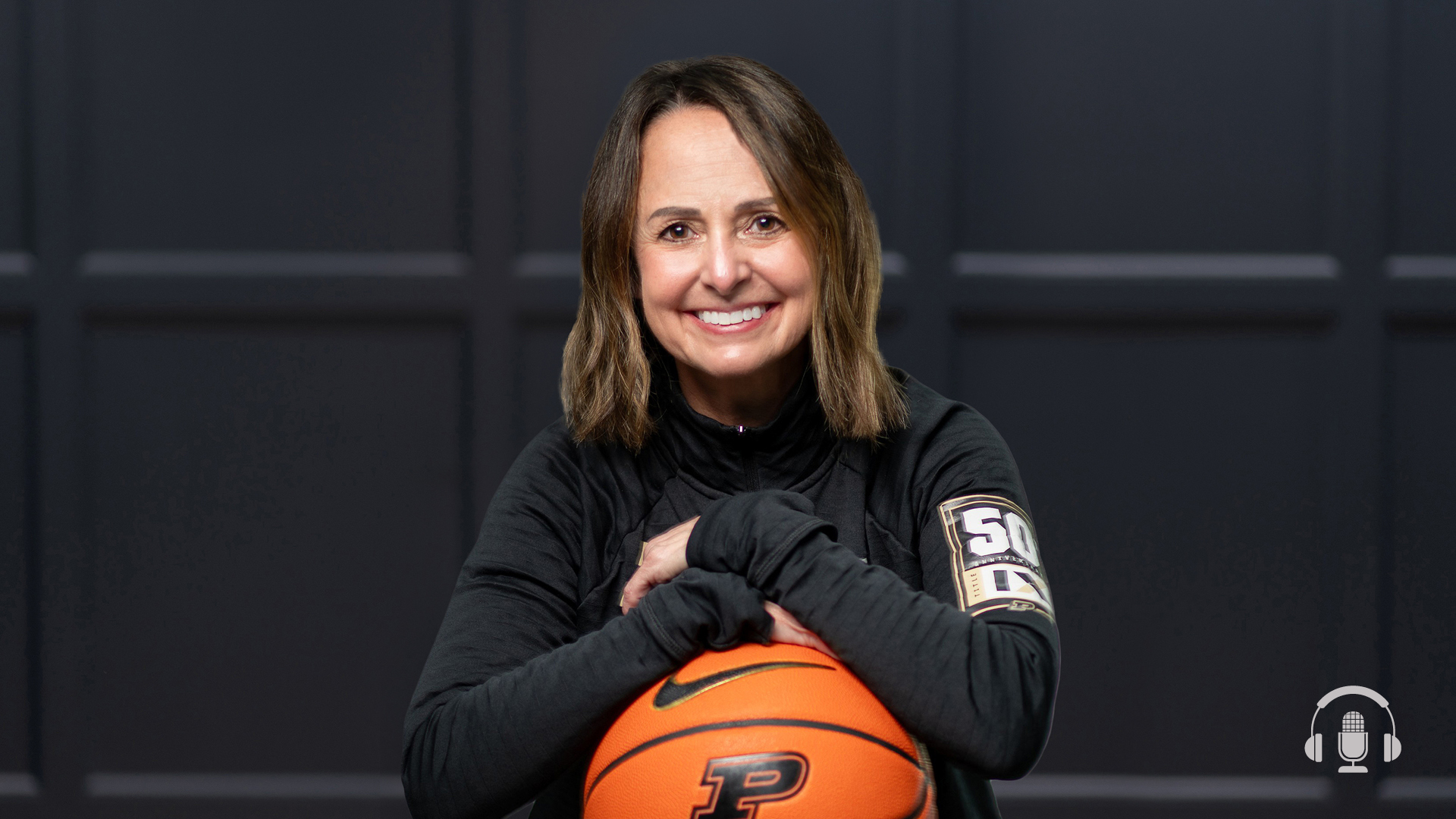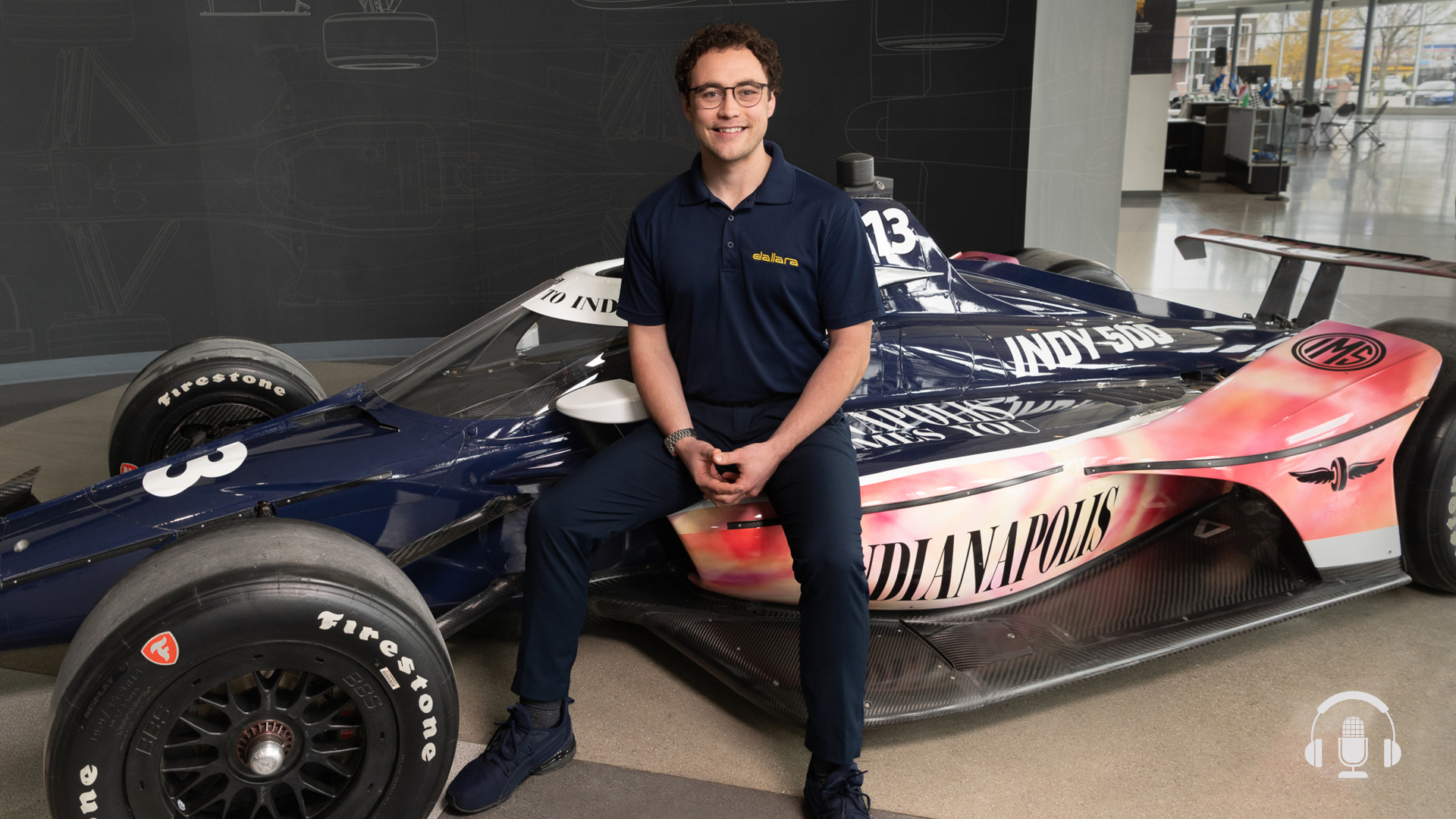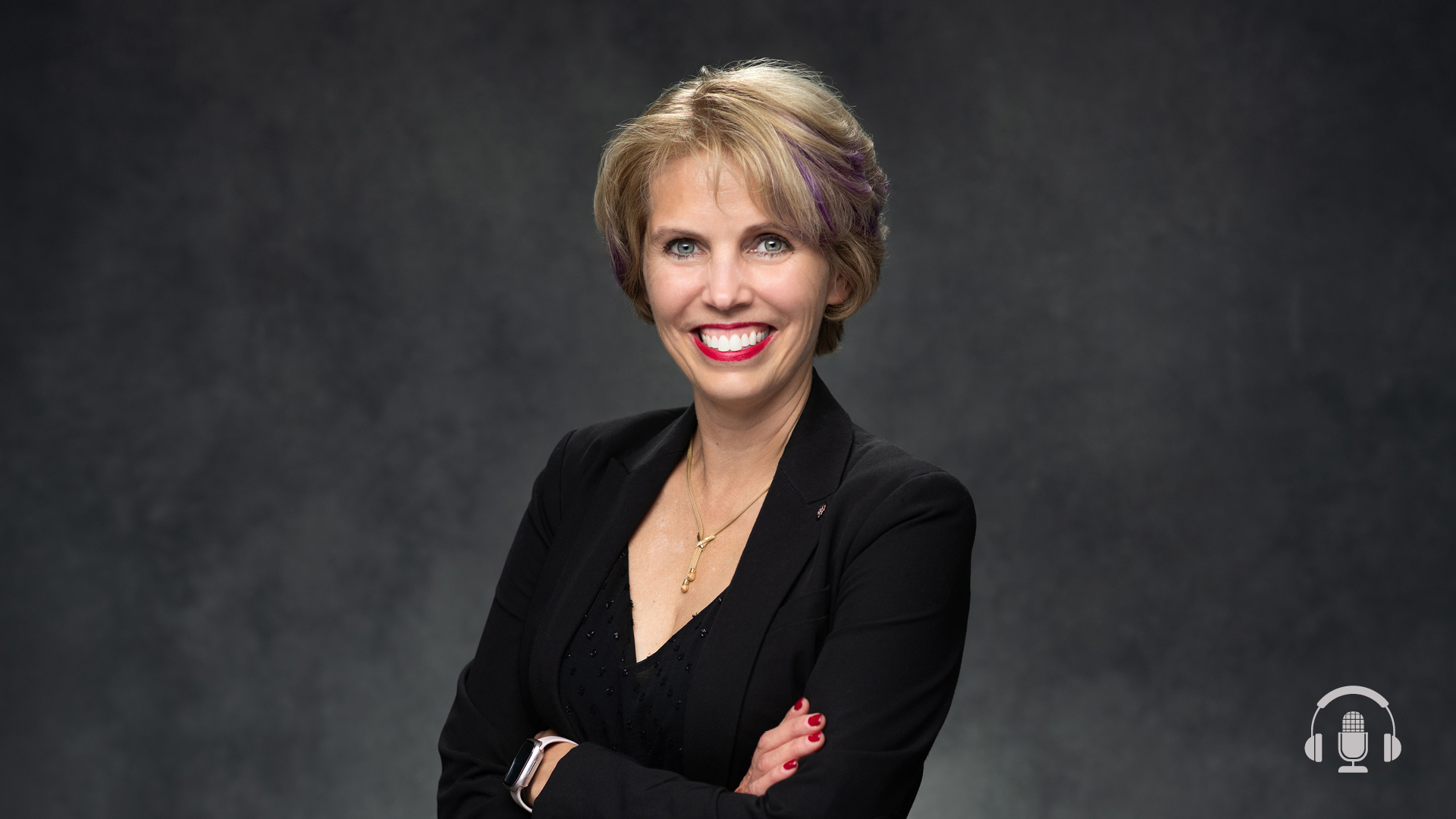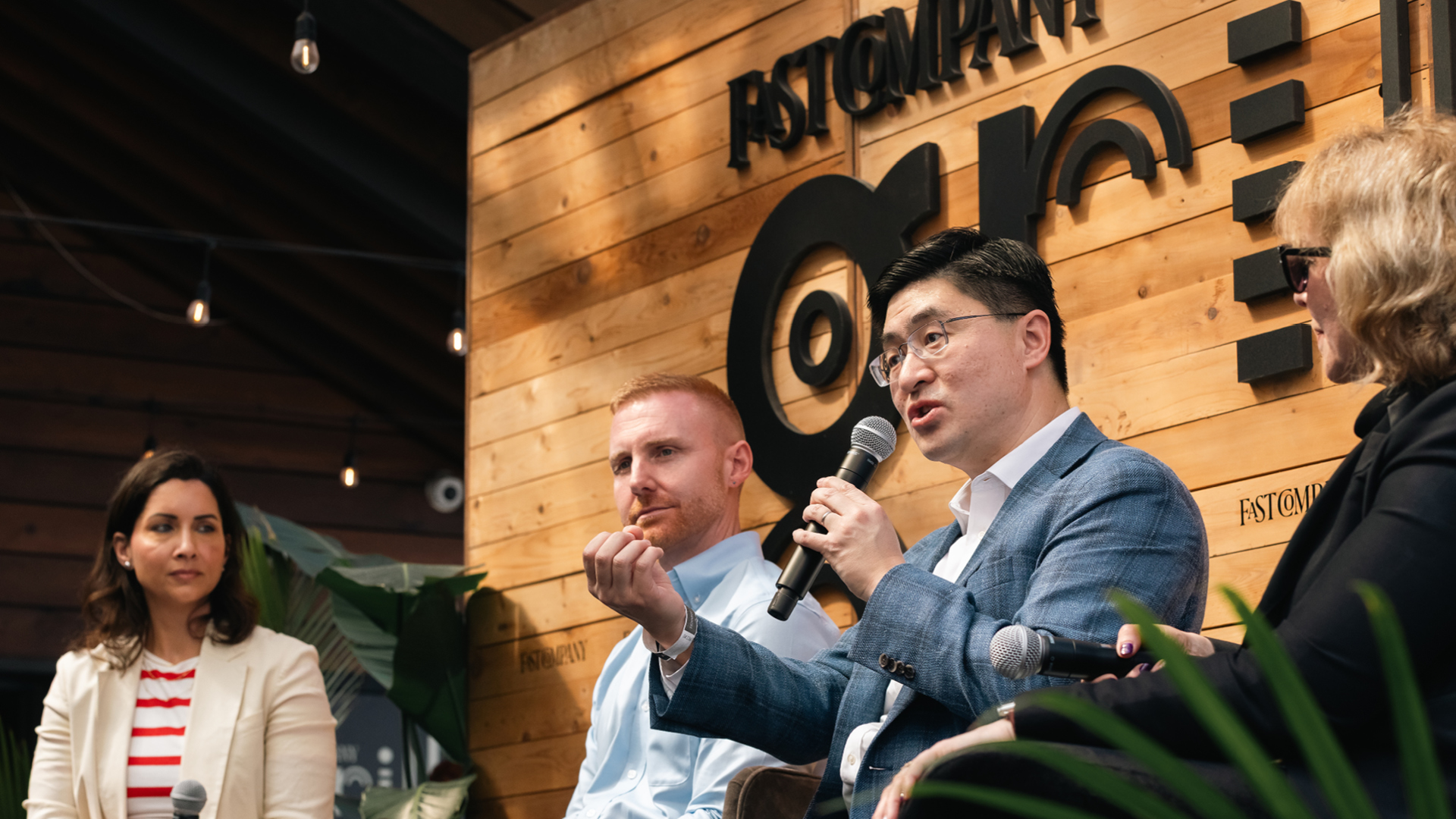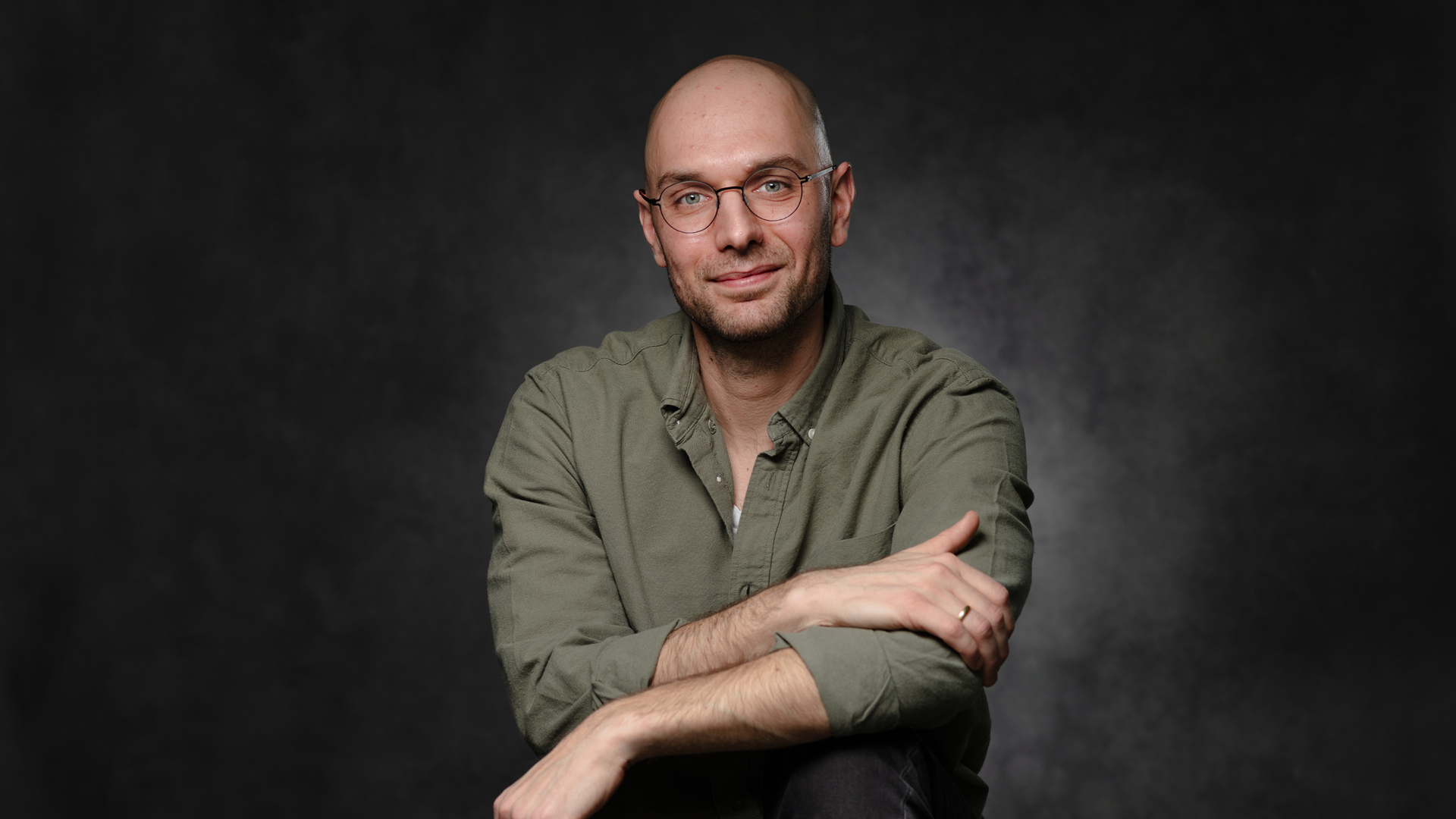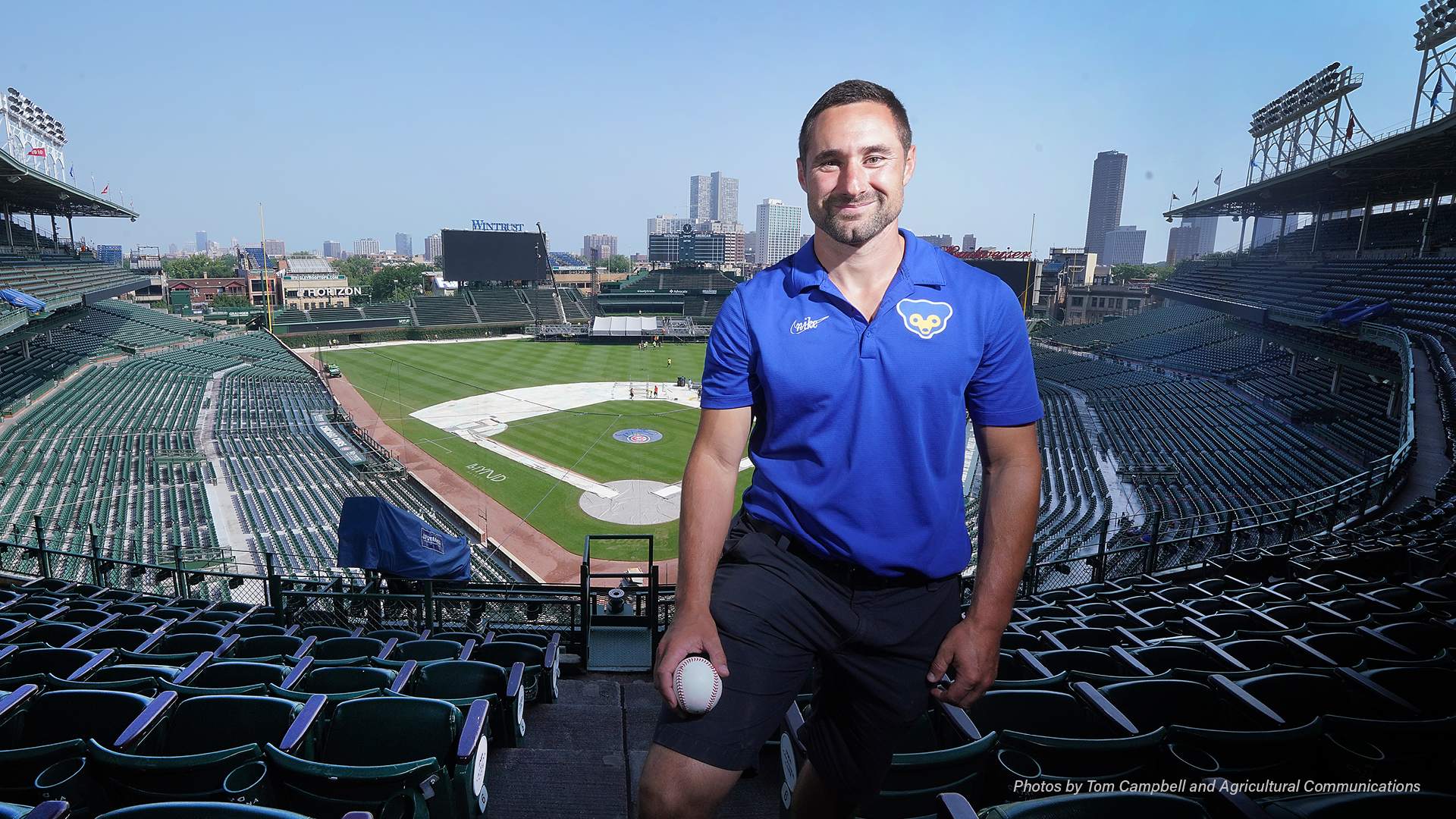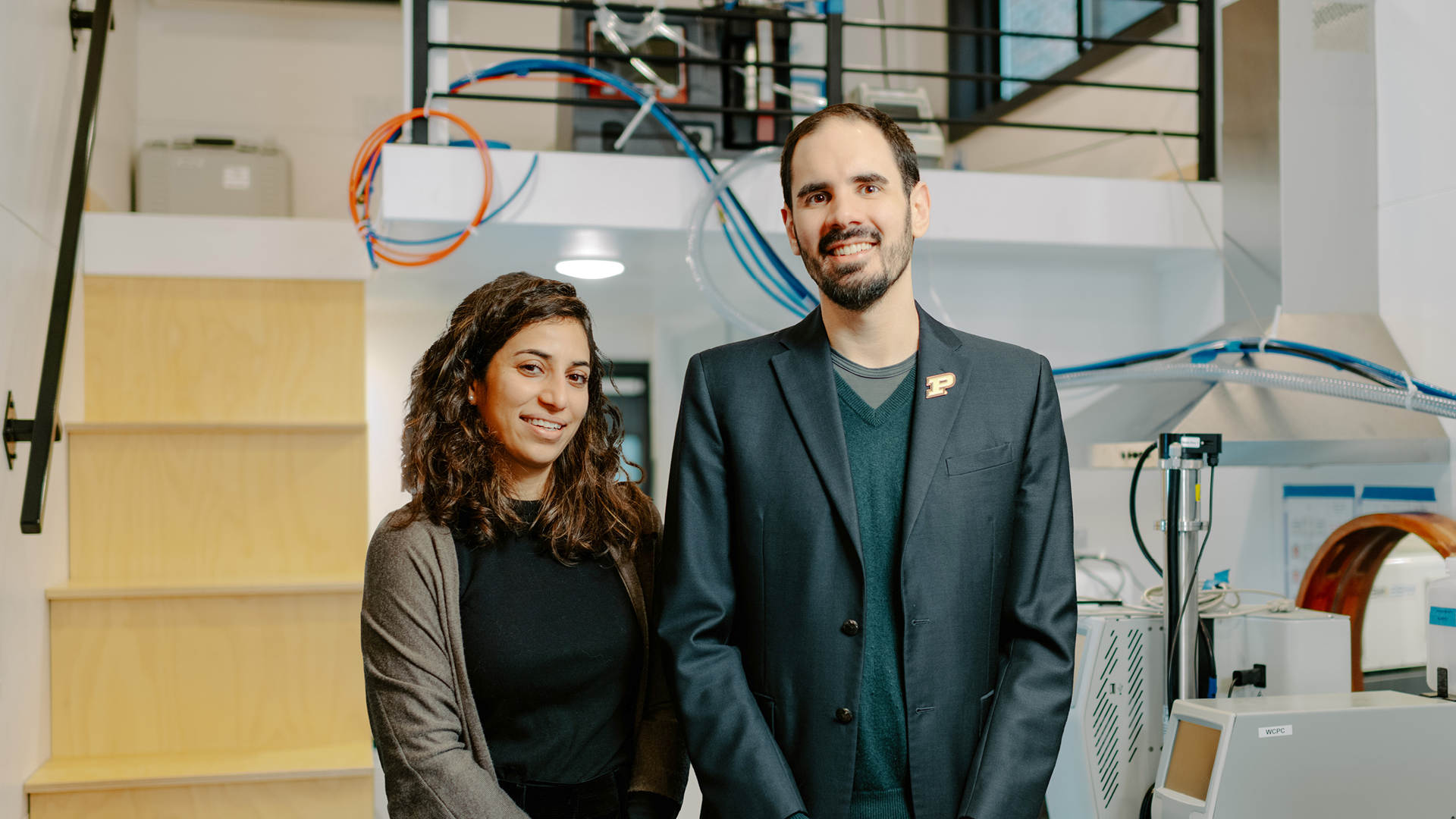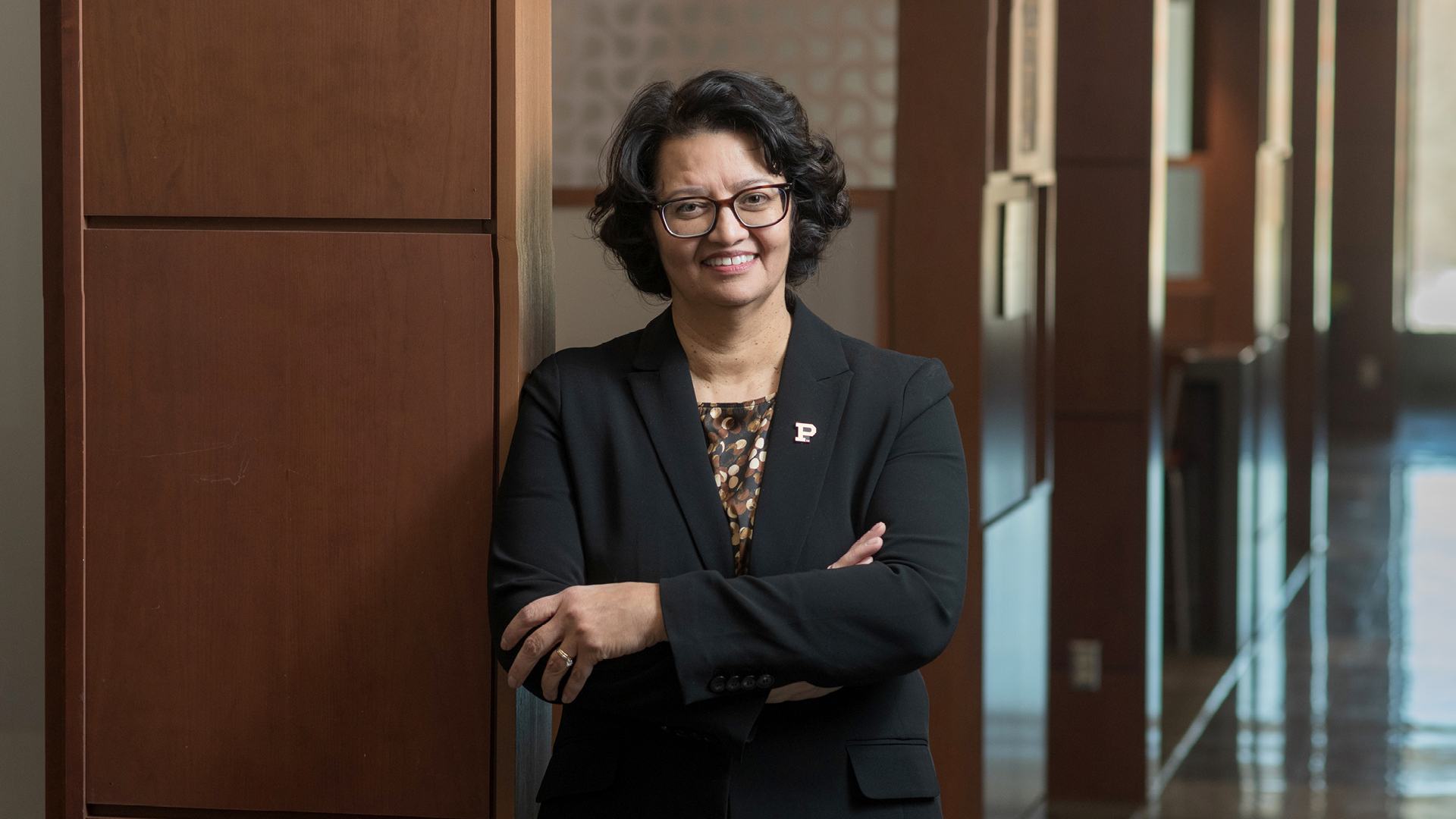Podcast Ep. 88: ‘Dune’ Star, Tony Nominee Stephen McKinley Henderson Reflects on Purdue Theatre Education
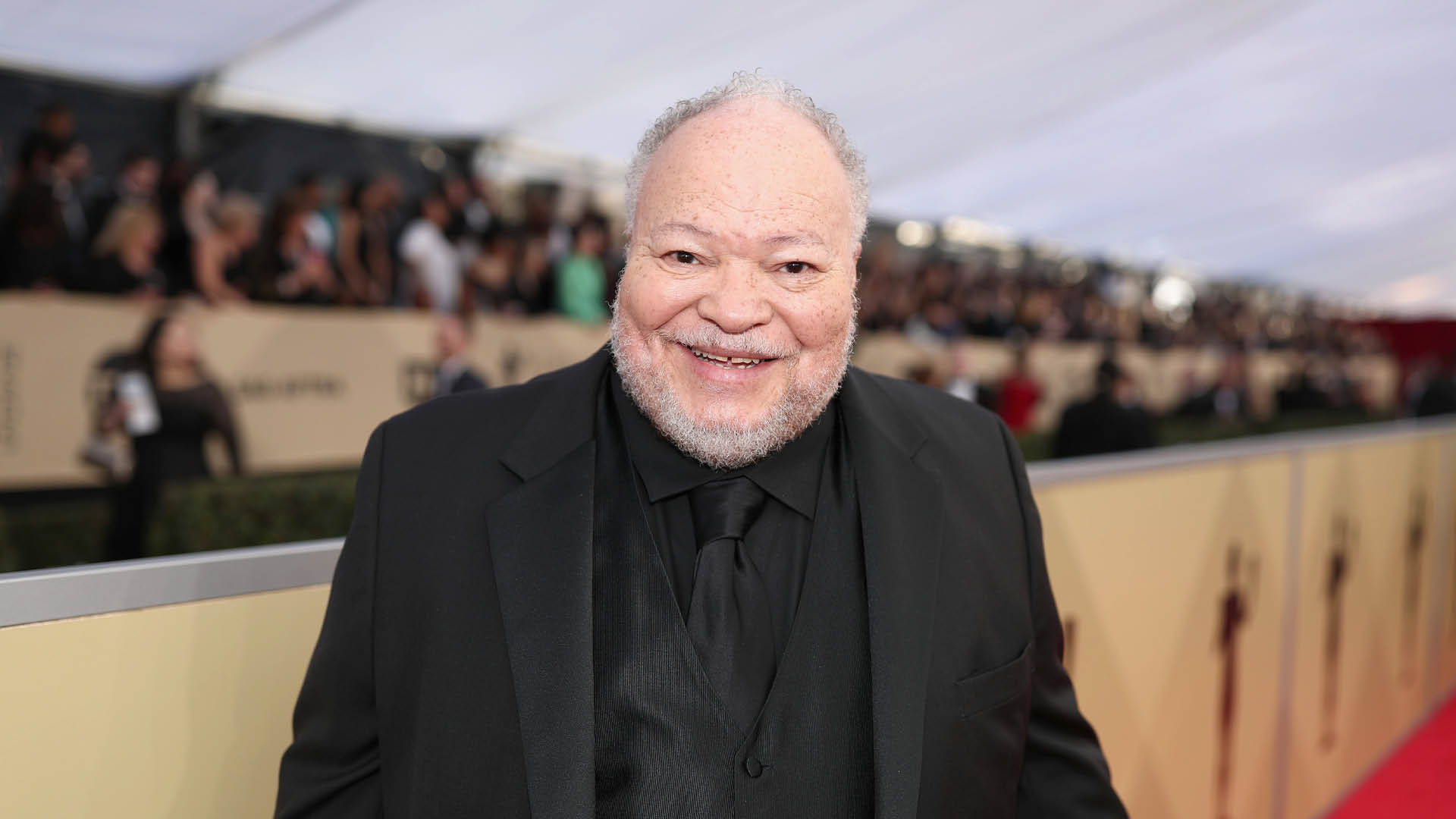
*This interview with Stephen was recorded before the SAG-AGTRA Strike.
In this episode of “This Is Purdue,” we’re talking to Tony-nominated actor and “Dune” star Stephen McKinley Henderson (MA theatre ’77).
You may know Stephen from box-office hits and award-winning films like “Dune,” “Fences” and “Lincoln.” But did you know that he spent some of his formative years at Purdue?
Listen as Stephen discusses what led him to Purdue – and how his time on campus propelled him to an esteemed career both on Broadway and in film. Stephen shares the story of how he met his wife at Purdue and how theatre faculty members Jim O’Connor and Joe Stockdale, along with Tony Zamora, director of the Black Cultural Center, served as key mentors and shaped his acting career path.
You’ll hear more about what Purdue’s College of Liberal Arts means to Stephen, some of his favorite roles throughout the years and the unique challenges of performing in front of a camera instead of a live audience.
Plus, Stephen shares what it’s like working with renowned Oscar-nominated actors Timothée Chalamet and Austin Butler, and you’ll get a sneak peek of what’s in store for “Dune” fans in the upcoming “Dune: Part Two” blockbuster sci-fi movie.
- Read more about Stephen McKinley Henderson
- Learn more about Purdue’s College of Liberal Arts
- Learn more about Purdue’s Black Cultural Center
Full Podcast Episode Transcript
Stephen McKinley Henderson:
This is Stephen McKinley Henderson and you’re listening to This Is Purdue.
Kate Young (00:04):
Hi, I’m Kate Young and you are listening to This is Purdue, the official podcast for Purdue University. As a Purdue alum and Indiana native. I know firsthand about the family of students and professors who are in it together, persistently pursuing and relentlessly rethinking. Who are the next game changers, difference makers, ceiling breakers, innovators? Who are these boiler makers? Join me as we feature students, faculty and alumni, taking small steps toward their giant leaps and inspiring others to do the same.
Stephen McKinley Henderson (00:39):
I benefited from the cross-pollination that the College of Liberal Arts allows you to have with scientists and researchers, so that the friendships and that the interests that you become aware of, because you are in a truly universal knowledge environment. There is really a liberal assortment of knowledge that you can get to be exposed to. I wish that everyone would know that liberal arts education exposes you to be a citizen of the world.
Kate Young (01:20):
In this episode of This is Purdue, we’re talking to Purdue theater alum and Tony nominated actor Stephen McKinley Henderson. Now, you may know Stephen from Box Office hits and award-winning films like Dune, Lady Bird and Lincoln, or maybe from Tony nominated plays like Between Riverside and Crazy and Fences with Denzel Washington and Viola Davis. But did you know that Stephen spent some of his formative years at Purdue? In our 88th episode of This is Purdue, Stephen discusses what led him to Purdue and how his time on campus propelled him to an esteemed career, both on Broadway and in film. You’ll hear more about what Purdue’s College of Liberal Arts means to Stephen, some of his favorite roles throughout the years and the unique challenges of performing in front of a camera instead of a live audience.
(02:09):
Plus Stephen shares what it’s like working with renowned Oscar nominated actors, Timothee Chalamet and Austin Butler, and you’ll get a sneak peek of what’s in store for Dune fans in the upcoming Dune, Part Two blockbuster sci-fi movie from semiconductors to race car engineers to athletics to movie stars. This is Purdue really covers everything that Purdue University has to offer, and we know you’ll enjoy this episode with Stephen McKinley Henderson. Thank you so much for joining us. It’s a total honor. Let’s start with your earliest memory of Purdue University. What led you to Purdue in the first place?
Stephen McKinley Henderson (02:46):
I went to this event. At the time, it was called the University Resident Theater Association auditions, in DC. At the time, I was leaving North Carolina School of the Arts and looking for graduate programs, and you went and did your audition in DC and then you were asked to come back to various schools and I had quite a few callbacks and I went to these different rooms to talk to these different programs. And quite early on in that speed-dating atmosphere, I met Dr. Joseph G. Stockdale, who was from Purdue. And talking to him, that sense that I knew within minutes that, “Oh, I want to go there,” because he was so astute in terms of theater and I could tell that he was doing wonderful plays there ’cause he gave me a brochure of the plays that they were doing, and I was really astounded that those kinds of plays were being done at a school, as you noticed, primarily known as a STEM school, and even then it was known as an engineering school.
(04:00):
So I made my decision quite readily and he made it quite tempting too. And there was a new play that was written by a woman named Sheila Hofstetter that was going to be produced that summer. It called Busy Dying, taken from the line of Bob Dylan’s song, He Not Busy Being Born is Busy Dying. I was intrigued by that and the role that he wanted me to play. And so it was Purdue and I started in the Summer program and with the summer theater because they had a Purdue Summer Professional Theater where they hired actors from New York and other places. And so that’s where I started. And it was because of Joe Stockdale.
Kate Young (04:41):
Joe Stockdale was a professor of theater and film at Purdue. Stephen discusses the impact Joe and a few other Purdue mentors had on his career and his life.
Stephen McKinley Henderson (04:50):
Jim O’Connor, James O’Connor, who was also at Purdue… Joe was the classicist who knew the classics quite well and taught Chekhov brilliantly. It was a wonderful course to take on a great Russian playwright, and Jim O’Connor was the avant-garde, visionary wildcard. And so learning from the two of them and being directed by the two of them was a brilliant education and they were polar opposites, but at the same time, both just brilliant artists. And so between Jim O’Connor and Joe Stockdale and Antonio Zamora, who ran the Black Culture Center at the time, Tony Zamora, who was a jazz saxophonist and who had his own group, but was the director of the Culture center. And I had an assistantship there at the Culture Center. So those three men were my guiding lights while I was at Purdue and beyond.
Kate Young (05:52):
If you check out our Instagram, @lifeatpurdue, you can see a photo of Stephen from the Play Remembrances in the Louisville Harlem, which was directed by Jim O’Connor in 1976 at Purdue. Stephen tells us about a few other key memories from Purdue, which include his involvement in the Black Cultural Center and one extremely pivotal moment in his life, meeting his wife. And by the way, this boilermaker couple recently celebrated their 45th anniversary. Tell us more about your involvement with the Black Cultural Center. I read that you were the director of the drama workshop there. Tell us about some more memories from that time.
Stephen McKinley Henderson (06:29):
Well, that was just a fabulous reality on the campus of Purdue for many African American students, and I got to direct an original play there called A Modern Gospel, and I cast my wife in a role, who was to become my wife, I cast her as the grandmother in the play. And she was quite surprised because she had auditioned to play the mother and she used to saying, “Well, you would cast me as grandmother,” but I told her, she hates when I tell this story, but I told her, “I’m going to know you until you are a grandmother.” I made my play for her, very early. She knew it was just to get her in to play. She was the best actor to play the grandmother. So she says, “Oh, don’t give me that line. Just if you want me to play grandmother, I’ll play grandmother.” So now she is a grandmother and we have three grandchildren. That was the kind of really lifelong friendships that were made through the Culture Center and through the theater department at that time.
Kate Young (07:26):
Meeting your wife must be up there in your Purdue moments, but do you have any other favorite Purdue moments or memories when you look back?
Stephen McKinley Henderson (07:33):
Yes. We had a Paul Robeson conference, international conference about life and career of Robeson, and I directed another original play that the head of the Africana studies program, Dr. Samuel Arthur Hay, he had written a play called The Robeson Play Singers and I directed that play and we got two guest artists, one from. That was a very successful production and a precious memory of my Purdue years and also two plays we did in the theater department, one directed by Joe Stockdale, the Busy Dying play I told you about, that was chosen and went to the regional American College Theater Festival and the other play by Jim O’Connor, a British play called Loot by Joe Orton, that also went another year to the regional American College Theater Festival. And I was also given some award for that. I can’t remember what it was, but it was those three productions, the Robeson Play Singers and Busy Dying and Loot were just really high points in my theatrical career. Wonderful productions, wonderful casts, great experiences.
Kate Young (08:52):
You alluded earlier that Purdue is traditionally known as a STEM school. What do you wish more people knew about the College of Liberal Arts here at Purdue?
Stephen McKinley Henderson (09:01):
That’s a wonderful question, and the thing is that I benefited from the cross pollination that the College of Liberal Arts allows you to have with scientists and researchers so that the friendships and the interests that you become aware of because you are in a truly universal knowledge environment, there is really a liberal assortment of knowledge that you can get to be exposed to. And those friendships that I made with researchers, which also made me enjoy the research that one does to explore a role, research is a creative activity and creativity calls and requires research. And especially if you’re going to play a character who has a profession that you may know nothing about, it’s wonderful to go in pursuit of that knowledge that character would have and what did they have to experience to become that judge or that police officer or whatever. So that was the main thing.
(10:16):
I wish that everyone would know that liberal arts education exposes you to be a citizen of the world and to be welcoming of other cultures. It should be the most expansive thing you can do as a person. It enhances your humanity, the School of Liberal Arts at Purdue.
Kate Young (10:34):
I love that. That makes total sense about the research for a role and how that plays into creativity. I love that. Stephen has received two Tony nominations throughout his career so far. The first was for best featured actor in a play for his role in Fences in 2010. Fences is a 1985 play by American playwright August Wilson. Set in the 1950s, the play explores the evolving African-American experience and examines race relations among other themes. In 2010, the first Broadway revival of this play opened in New York City starring Denzel Washington and Viola Davis as the married couple struggling with changing US race relations. Stephen played Denzel’s character’s best friend and coworker in the play. This revival was nominated for 10 Tony Awards, winning three for best revival of a play, best actor in a play and best actress in a play.
(11:29):
Stephen’s second Tony nomination came just this year for best actor in a play for Between a Riverside and Crazy. In that play, Stephen starred as Walter Pops Washington, a retired New York City policeman living in a rent control apartment on Riverside Drive. The Pulitzer Prize Committee called Between Riverside and Crazy, quotes, “A nuanced, beautifully written play about a retired police officer, faced with eviction, that uses dark comedy to confront questions of life and death.” Stephen describes the feeling of having two Tony nominations under his belt. What does it feel like when you hear that you’re a Tony nominee?
Stephen McKinley Henderson (12:08):
Well, it just makes you glad you ran away to join the circus all those years ago and that you cleaned up behind the elephants for a while and now you made it to the big top. And also it justifies the belief that those teachers had. I went to a wonderful high school Sumner High School in Kansas City, Kansas, and I had wonderful teachers who encouraged me to be an actor and I was a math major and I did rather well. It was a double major in my first year at Lincoln University in Jefferson City, Missouri. I was a political science and a math major, but I had teachers who literally encouraged me to drop all that serious stuff and pursue acting.
(12:58):
One dear, dear mentor, Joe Terrell, who was an engineer for Ford Motor Company, and he had been a supporter of me in my math pursuits, but he told me when the time came that I had to leave Lincoln University and go to Julliard School in New York and give up the year of college I had, he said, “I’ve never suggested to any math major that I ever mentored that they should do this,” he said, but his wife was a director and an acting teacher of mine in high school. And he said, “But I’ve seen you in the plays and you know ought to do it, man, you got a shot.” So it seemed to call me, seemed to be my calling.
Kate Young (13:41):
Along with his Tony nominations, Stephen has also received two Screen Actors Guild Awards, and a few years ago, Vulture named Stephen as one of the 32 greatest character actors working today. In that Vulture article, they say, “Stephen radiates calm and the kind of zen amusement that laughs at whatever’s most serious. He is a presence deserving of center stage.” Stephen also received two other awards this year that carry special significance, the Lucille Lortel Lifetime Achievement Award and the Harold Prince Lifetime Achievement Award at the Drama Desk Awards. So how did Stephen’s Purdue University experience help to tee up this award-winning actor for success?
Stephen McKinley Henderson (14:22):
The main thing, Kate, that I got from Purdue was the seamless connection between education and professionalism. And I knew that I was really grateful for the teachers that I had at Purdue and before that, even in high school, the teachers who were really professional level artists. And so Purdue solidified that idea that it wasn’t a matter of those who can do and those who can’t teach, that’s nonsense. Only those who can teach should teach and their abilities have the same international impact of professional artists. That’s the thing that I really got from Purdue Graduate Theater and my mentors, as well as Zamora there, he was a world-class jazz artist. The notion that those lines are blurred, that’s something that I continue to have throughout my career that you could do both effectively.
Kate Young (15:27):
Not only is Stephen a wildly successful theater actor, he’s also been in many hit movies such as Lincoln, Manchester by the Sea, Lady Bird, and more recently the Oscar Award-winning Dune. You have a ton of experience within the theater world within Broadway, but then you’ve also been in absolute blockbuster movies like Dune. Walk us through the difference between theater roles in a movie and do you like one over the other?
Stephen McKinley Henderson (15:54):
No, I just like to be employed, so I have no one over the other, but I do, at this age, in my seventies, I enjoy film the way I enjoyed theater when I was young. When I was younger, there was no question, a live theater was it, because the inspiration you get from a live audience, that connection between you, the other actors and the live audience, and what it turns into with film is being a part of a director’s vision, for a director to say, “I have this vision and I see you in it as this character.” To have someone like Stephen Spielberg or Denzel or Halle Berry, Alex Garland, Denis Villeneuve, these wonderful directors who have this incredible vision and they see you as fulfilling a part of it. So that’s really thrilling and the moment-to-moment spontaneity that’s required in film, but the rigor of the theater is to do the show eight times a week and a matinee and a night show on Wednesday and Saturday. That’s quite a rigor.
(17:07):
But the challenge in film is to remain spontaneous if you are doing 15 takes. And to keep discovering though, they say, “We are going to move on.” So they’re different, but they come from the same desire to tell a story, tell a story well, and tell it in many voices.
Kate Young (17:29):
As for Stephen’s favorite roles throughout his long and thriving career, many involve his time acting live on stage. But he says one of his favorite roles in a film is actually from an upcoming movie called Civil War, directed by Alex Garland and starring Kirsten Dunst. He shares more on his favorite theater roles and a sneak peek of what to expect when it comes to the movie, Civil War.
Stephen McKinley Henderson (17:51):
I would have to say Joe Turner’s Come and Gone, the character of Bynum in August Wilson’s play, Joe Turner’s Come and Gone, I would have to say, it was very high up there. That and Pops in Between Riverside and Crazy, because I did a lot of regional theater and to do Bynum in Joe Turner’s Come and Gone at the Studio Arena Theater in Buffalo, New York, that was a real high point. And to get to do Between Riverside and Crazy and do it in three different iterations and for the playwright to win the Pulitzer Prize and I received my second Tony nomination and of course also playing Bono with Denzel and Viola Davis on stage and then doing the film. And that’s where I got my first Tony nomination. So if I talk too long, I’ll tell you more roles than that, but Joe Turner and Pops in Riverside and Bono, those three, that’s as narrow as I can make because they’re all wonderful experiences.
(19:01):
But those three experiences, and they’re all stage experiences except one also went to film. But now if I just limit myself to film, I have one that’s in the can, as they say, a film by Alex Garland called Civil War. That will be out later this year. I really think it’s very close to being my favorite role on film. And it was great to be a part of Beau is Afraid, to work with Joaquin Phoenix and Patti LuPone on Beau is Afraid, and that’s out there now, but this Civil War by Alex Garland that’s coming, watch for that. Kirsten Dunst is the star of the show but wow, what a film. If you Google it, they’ll tell you what they want you to know about it.
Kate Young (19:47):
That’s a good tip.
Stephen McKinley Henderson (19:48):
Civil War, and it takes place in America’s not too distant future, not the old Civil War. The one that might have happened had January 6th, gone the wrong way. So to see our own country in the midst of a new civil war, which is, we want to avoid at all costs, but it was a wonderful film to be a part of and a wonderful cast. Wagner Moura and Cailee Spaeny and wonderful group of people. But Kirsten is a fabulous actor, wonderful to work with her.
Kate Young (20:21):
It’s definitely safe to say one of the biggest blockbuster movies Stephen has been a part of is Dune, the epic science fiction film starring Timothee Chalamet, Zendaya and Jason Momoa, just to name a few. Stephen shares a preview of what’s in store for Dune fans in the upcoming Dune, Part Two, and discusses what it’s like working with actors like Timothee Chalamet and Austin Butler.
Stephen McKinley Henderson (20:43):
I tell you what was so wonderful about being a part of that, both part one and part two is such a great international cast. I mean, truly an international cast, but what I had the most fun with this last time was working with Austin Butler, who played Elvis recently. So working with Austin and Timothee Chalamet, it was like working with Elvis and Bob Dylan because Timmy’s going to be playing Bob Dylan in a movie coming up. So to work with Elvis and Dylan on Dune was quite a kick. And boy, I tell you, Denis Villeneuve is a great filmmaker, and the Dune fans will not be disappointed in part two. I can assure you, if you enjoy part one, get ready because it’s a fabulous, fabulous journey.
Kate Young (21:42):
I know a lot of people are looking forward to that. I loved Austin Butler in that Elvis movie. I thought he was incredible.
Stephen McKinley Henderson (21:46):
And what a nice person. He’s just the nicest guy and he and Timmy both just wonderful people and they play such nemesis in the film, so it was wonderful to see them off camera. And Austin was so nice to me ’cause I had a medical emergency during the shooting and I had to go away. And when I came back, and he played a character that was not very happy with me at all, and he was quite chilling, and I was giving him back the looks, but when they say, “Cut,” he would come over and say, “Mr. Henderson, are you okay? Can I help you? Can I get you anything?” And he was just so nice. And then we’d go back to roll and he went, “Ugh.” He was on my case. So I just so appreciated Austin, a wonderful, wonderful person.
Kate Young (22:37):
Now when you go see Dune Part Two, you’ll be able to tell all of your friends and family that a Purdue alum is starring in that film. I asked Stephen what advice he would give to students who want to pursue an acting career, and his answer here is really special.
Stephen McKinley Henderson (22:52):
If they want to pursue theater, they’re already doing it. If they’re not already doing it, then they’re not into it. Truly, any artist, anyone who wants to be a writer has already filled a notebook with their ideas and their poetry and their short stories. But what I would definitely say is pursue your craft before you pursue your career. Don’t be looking for, how can I get on television before you really have explored what the art form is and expanded your instrument to be able to do and breathe properly and articulate properly and so forth. So pursue your craft before you pursue your career.
Kate Young (23:34):
And speaking of pursuing your craft, what would you say persistence means to you? Like you said, there’s a lot of roles that you probably didn’t get. You’re working your way up throughout the many years of your career. What does that word persistence mean to you?
Stephen McKinley Henderson (23:51):
Well, persistence, actually, for me, it means getting up every day and going to work. It’s what my papa did when he worked for the packing house and what my grandfather did, and my uncles who work for General Motors. You get up and you go to work and you take care of your responsibilities. That’s why I was very fortunate to meet Pam at Purdue because you fall in love with acting in the theater, but the people who love you don’t necessarily love the theater and acting. So it’s very important that you have that kind of support, but the persistence is getting up every day and doing your job.
Kate Young (24:28):
I asked Stephen what role Purdue has played in his life.
Stephen McKinley Henderson (24:33):
As I say, some of the most important people on my journey, I met, Joe and Jim O’Connor and Pam and all these friends, the Culture Center, the Black Culture Center. When I think of Purdue, and I think of being a boiler maker and being a part of that whole tradition, because I went to grad school, now my wife was in undergrad, and there are many undergrad students when they meet a boiler maker, they think football and teepees in the trees and you know what I mean? And a real boiler maker when you’re drinking at the chocolate shop or-
Kate Young (25:05):
Harry’s?
Stephen McKinley Henderson (25:06):
Yeah, you know what I’m saying? So those are the things. But as a graduate student, I was primarily doing my grad work. And so the Culture center and Tony Zamore was really… And he was a boiler maker, in fact he was a Sagamore of the Wabash, and to get to be myself to get one of the old masters, I’m really quite proud of that. So that means boiler maker to me. Those are the things. And just the Wabash River and on a Tippy Canoe, just so much the surroundings. It’s just a wonderful West Lafayette and Lafayette and along the Wabash, evenings, cool breezes the real deal.
Kate Young (25:52):
Stephen recalls a particular Purdue-themed moment, well known set for the movie Tower Heist starring Eddie Murphy, Ben Stiller, and Matthew Broderick, just to name a few. This movie was released back in 2011.
Stephen McKinley Henderson (26:04):
I got to be a part of a film called Tower Heist, and in this movie, Tower Heist, they have the Thanksgiving Day parade. And I can tell you how proud I was when I was in a movie that had the Purdue Marching Band in that section of the Macy’s Thanksgiving Day parade. I knew I was in the right place on the right path when I turned around and saw that. That was really quite good. Quite something.
Kate Young (26:31):
As for Stephen’s next giant leap, well, it’s not something we’ve heard yet on This is Purdue, but it certainly is a very special leap.
Stephen McKinley Henderson (26:38):
The giant leap of grandparenthood. That’s my favorite thing right now. I have three grandchildren and my son and his wife, they have one boy, and then they have boy girl twins. And that little girl, she’s got me right in the palm of her hand, and she bosses her brothers around too. So my next great leap and my current most fulfilling enjoyment is being a grandparent.
Kate Young (27:06):
That’s wonderful. Are you shooting anything right now? What’s your schedule? Do you have plenty of time with your grandkids?
Stephen McKinley Henderson (27:13):
No. Well, they live in Los Angeles and I live in Buffalo, but I’m currently shooting in Toronto, a wonderful limited series on Netflix called The Madness, with a great actor Colman Domingo and Marsh Stephanie Blake and John Ortiz. It’s a wonderful, wonderful, limited series. I love the role and especially supporting Colman Domingo’s wonderful talent. So this is my favorite thing. I get picked up because I live in Buffalo and they’re shooting in Toronto, so I don’t have to get on a plane or anything. They send a car to my door, pick me up, drive me across the border, and I shoot for a couple of days and then come back home until they call me again. And I’m in four of the eight episodes. So I’ve been shooting from early June to till August.
Kate Young (28:10):
We can’t thank Stephen enough for his time. What a treat to have a famous movie and Broadway star on our official university podcast. If you are interested in watching some clips from my virtual interview with Stephen, head over to our podcast YouTube page, youtube.com/@thisispurdue. Be sure to subscribe there so you never miss any of our podcast videos. This is Purdue is hosted and written by me, Kate Young. Our podcast videography for this episode was led by Ted Shellenberger in collaboration with Thad Boone, who is a huge Dune fan, by the way. Our social media marketing is led by Ashlee Shroyer and Maria Welch. Our podcast photography is led by John Underwood. Our podcast design is led by Caitlyn Freville. Our podcast team project manager is Emily Jesulaitis. Our podcast YouTube promotion is managed by Megan Hoskins and Kierstin Bauman. Our podcast Research is led by Sophie Ritz, and additional writing assistance is led by Joel Meredith.
(29:07):
Thanks for listening to This is Purdue. For more information on this episode, visit our website at purdue.edu/podcast. There, you can head over to your favorite podcast app to subscribe and leave us a review. And as always, boiler up.
